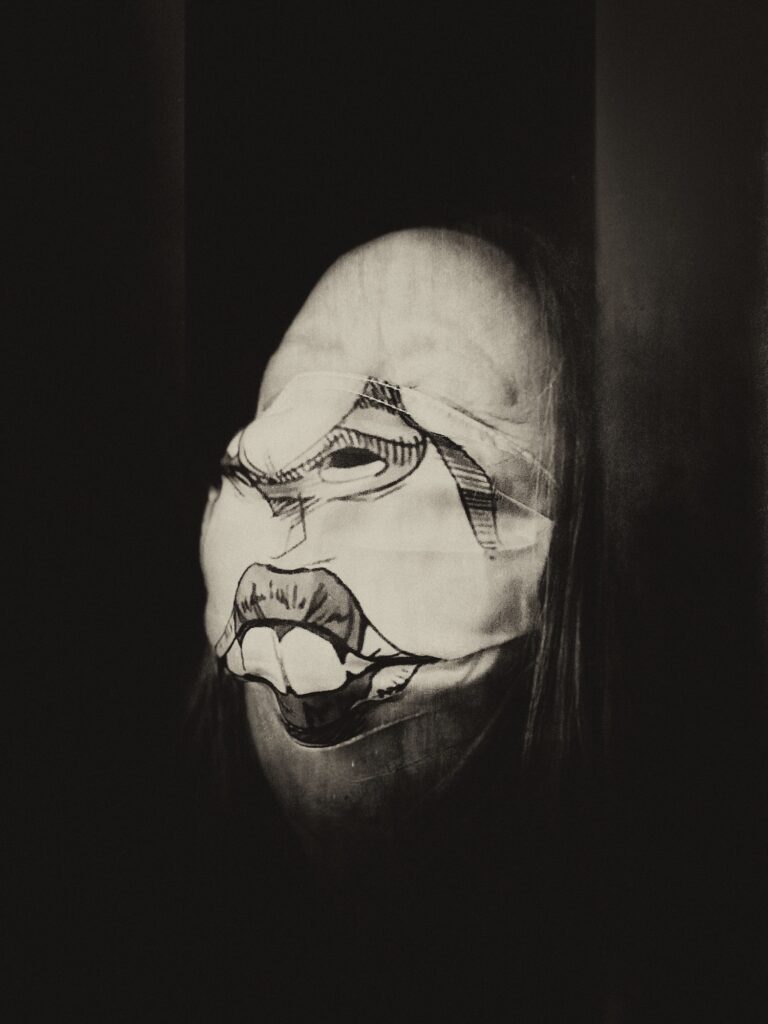“Man is least himself when he talks in his own person. Give him a mask and he will tell the truth.”
Oscar Wilde

I am researching masks and masking. I’m fascinated by masks as vehicles of human psychological expression. Carl Jung, founder of analytical psychology, described the process as the search for the compelling, the revelatory, the ambiguous within the search for the “real self”.
Masks belong to the tradition of theater and storytelling. The mask has a dual nature: it looks both in and out.
Looking deeper, the mask makes us ask questions: What is real? What is artifice? What is hidden and, likewise, what is revealed?
The etymology of “mask” traces back to Arabic. The word maskhara means “to transform into an animal or monster.” Romance languages use the word masquerade, meaning “to hide or protect the face”.
Today, in modern English language usage, we refer to “saving face”, meaning to save oneself from something embarrassing or shameful.
So, who are we? Are we more ourselves when we wear a mask or when we remove it? Does the mask embolden or repress? Or, more likely, is the answer to each of these questions, Yes?
I started playing around with various types of simple, cheap face masks. Little joke things. But I find as I push on with this work, that I am interested in the masks through which we enter and live in the world. The mask of “consultant”, “artist”, “sister”, “mother”, “doctor”, et cetera. The revealing and concealing of the self, far more than the protecting against the current plague upon our houses.
“The mask has a dual nature: it looks both in and out.”
Your sentence will be my meditation for the day.
Thank you!